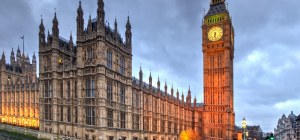60: Brexit Draft Withdrawal Agreement: You can check out anytime
 BDB Pitmans
BDB Pitmans
Yesterday (14 November 2018) the government published the draft Withdrawal Agreement which its negotiating team has agreed with the EU’s negotiating team, along with an outline of the Political Declaration on the framework for the future relationship between the United Kingdom and the European Union.
The UK Cabinet last night agreed to support the approach contained in those documents, but today has seen a hostile political reaction to the form of deal proposed, and a number of ministerial resignations, notably that of the SSExEU Dominic Raab.
The main point of contention is the negotiated ‘backstop’ provision, designed to prevent a ‘hard’ Northern Irish border. That backstop can only be ended by mutual consent, not by the UK unilaterally. So, if a UK / EU future relationship (which the Political Declaration proposes will include ‘a free trade area, combining deep regulatory and customs cooperation, building on the single customs territory provided for in the Withdrawal Agreement’) is not agreed, the backstop would continue indefinitely – keeping the whole of the UK in a customs union with the EU.
But the agreement also provides that the transition / implementation period (the period to end 2020 during which the UK remains subject to EU law) can be extended by agreement. During the transition period, the European Court of Justice maintains its current jurisdiction and powers – this means that the UK is bound fully to the court and by its rulings – but if the transition period is extended, the ECJ’s jurisdiction will also be extended. Tory Brexiteer Julian Lewis today called this a ‘Hotel California’ Brexit:
‘You can check out any time you like … but you can never leave.’
More resignations may follow, and a challenge to the Prime Minister’s leadership cannot be ruled out. Mark Francois, a Tory MP and member of the ERG, told the Prime Minister in the Commons that 84 Tories would vote against the deal. If that is correct, the deal has very little chance of obtaining Parliamentary approval.
It is also significantly more than the 48 Tory MP votes needed to trigger a leadership contest – so not only the deal, but the Prime Minister could be headed for the rocks.
And what of the Government itself? The DUP’s ‘confidence and supply’ arrangement with the Government also appears to have come to an end: that expressly requires them to support the Government’s position on Brexit, but today Nigel Dodds said the proposed deal would make the UK ‘a vassal state’ and ‘break it up’.
These seeds of discord were of course sown by the approach agreed at Chequers. In essence, the PM has sought to retain, so far as possible, existing economic benefits and security links with the EU, rather than making the ‘clean break’ favoured by more ardent Brexiteers. Unsurprisingly, as a quid pro quo, the EU has sought to impose conditions on those links and benefits which would bind the UK close to existing arrangements. And this means, inevitably, that some of the PM’s red lines about ‘taking back control of our borders, laws and money’, and no hard Northern Irish border and no border in the Irish Sea (the mutual incompatibility of which we have discussed here and here) have gone rather pink.
Those who liked those red lines (the DUP on Northern Ireland, Brexiteers on control of borders, money and laws) don’t like the compromises that have been reached, and have spoken in Parliament today of ‘betrayal’ and being ‘sold out’, of ‘broken promises and abject capitulation to the EU’ and of a deal that’s ‘dead on arrival’.
Remainers like Dominic Greave have also said they would have to vote against the deal, not only because it is worse than EU membership, but because it removes the UK’s ability to leave the new arrangements of its own accord.
But the PM can’t rely on Labour support either: Jeremy Corbyn described the proposed deal as ‘a huge and damaging failure’ which did not meet Labour’s six tests and ‘risks leaving the country in an indefinite halfway house without a real say.’ Neither is ‘no deal’ an option. Labour, of course, wants another General Election. Whether, given its own divisions, its policy on Brexit would be significantly different (or any clearer) than that of the current Government remains to be seen. Nor do the other parties support her: the SNP, the Greens, Plaid Cymru and the SDLP will all vote against the deal in the hope of stopping Brexit entirely.
The response on the EU side has been cautiously positive, although a number of EU Member states have indicated that they will want to look carefully at what the EU’s negotiators have agreed. The European Parliament President Antonio Tajani says the assembly is satisfied with the points in the draft agreement relating to citizens’ rights, the Irish border and the financial settlement.
In short, it remains extremely unclear whether Parliament will support the form of deal which the government has negotiated, whether the Prime Minister or the Government itself will survive. With time so short, all outcomes are possible. The PM once said that ‘no deal is better than a bad deal’. Many in Parliament will be wondering how to avoid that binary choice.
Enjoying the blog? Why not try the Brexit Blog playlist on Spotify.
‘You can check out any time you like, but you can never leave’
(The Eagles, Hotel California)









